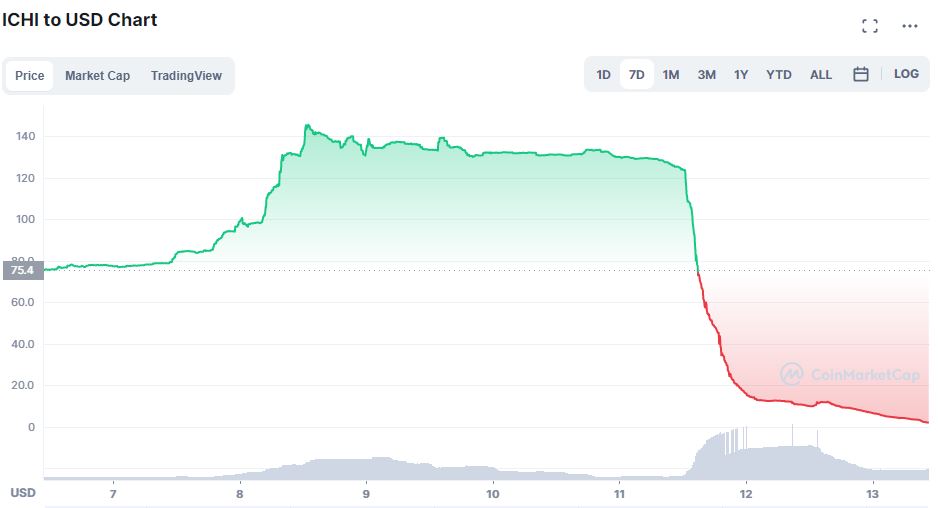One of Ichi Foundation’s pools on Rari has spun itself into a debt crisis due to falling BTC prices and an overzealous tolerance for collateral.
Negative Debt Cycle Hurts ICHI Token
According to a statement tweeted by Ichi, recent volatility seen with the ICHI token was caused by a cascade of liquidations made worse by the fact that the pool was overcollateralised. This then forced the price of the coin down dramatically.
In a tweet from Rari Capital – a lending and borrowing protocol that hosted Ichi’s Fuse pool – the pool was “experiencing bad debt due to cascading liquidations”:
The cascading liquidations were brought on by various events, one of them the allowance of millions of dollars as collateral to be taken and borrowed. When the price began to decline, there wasn’t enough liquidity in the decentralised exchange (DEX) to allow liquidations. This meant that highly leveraged positions couldn’t be closed, causing the pool to fall into debt.
When prices across the crypto market dropped – following the US$250 billion market wipe at the beginning of this week – “there wasn’t enough liquidity to absorb all the ICHI liquidations, causing the price to cascade”, according to Ashwath Balakrishnan, vice-president of research at Delphi Digital. Cascading liquidations can cause the price of an asset to decline rapidly and dry up liquidity, leaving the pool in debt and holders out of pocket.

ICHI was ranging around US$120 before April 11, the pool liquidations started around 12:30 UTC on that date and continued until 2:30 UTC on April 12. Prices have dropped all the way down to US$1.81 and have since stabilised.
Putting in the Proper Checks
The problem arose where some important parameters on the pool weren’t set optimally. As noted by Jack Longarzo – a developer for Rari Capital – the collateral factor was considerably higher than needed:
Longarzo also mentioned that the team could have added supply caps to limit the amount of collateral in the pool to prevent a situation such as this. He added that a red flag for users of Fuse should be to check if the collateral in a pool is significantly more than what can be liquidated.
Disclaimer:
The content and views expressed in the articles are those of the original authors own and are not necessarily the views of Crypto News. We do actively check all our content for accuracy to help protect our readers. This article content and links to external third-parties is included for information and entertainment purposes. It is not financial advice. Please do your own research before participating.
Credit: Source link






















